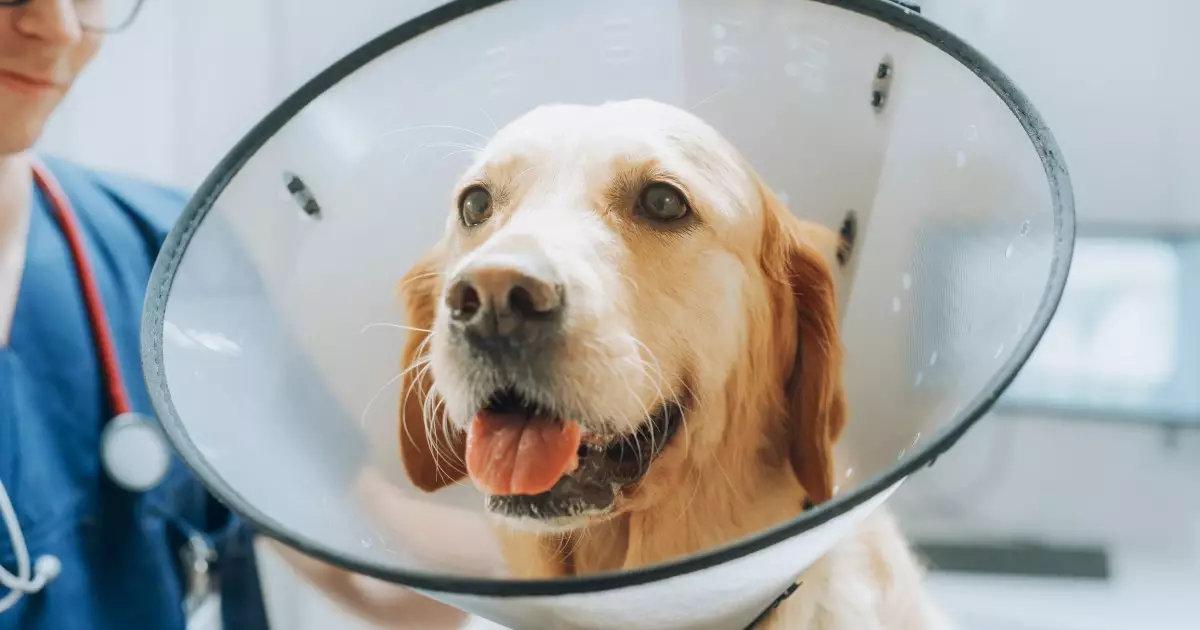Neutering is a crucial procedure that many pet owners consider for their male dogs. The process, often referred to as “the big snip,” aims to sterilize male dogs, preventing them from producing offspring. However, the implications of neutering go far beyond just controlling the pet population. This article will delve into the various aspects of neutering male dogs, dispelling common myths, exploring the benefits, and providing a comprehensive understanding of the procedure.
Understanding the Neutering Procedure
Neutering, or castration, is a straightforward surgical operation performed under anesthesia. During the procedure, a veterinarian makes a small incision near the scrotum, removes the testicles, and stitches the incision closed. Although it may sound daunting, the surgery is relatively simple and typically requires only a short recovery time. Most dogs can return home the same day, but there are important post-operative care steps that owners must follow to ensure their dog heals properly.
Post-surgery, many dogs may experience mild discomfort and some degree of swelling in the scrotal area. It is crucial for pet owners to monitor the healing process, especially to prevent the dog from licking or disturbing the incision site. An Elizabethan collar may be necessary during this recovery phase to deter licking, which can lead to complications.
There is a wealth of misinformation surrounding neutering and its effects on dogs. One prevalent myth is that neutering will change a dog’s personality for the worse. On the contrary, many pet owners find that neutering often leads to a calmer demeanor in their dogs. This is largely due to the reduction in testosterone levels, which can contribute to aggressive behavior, territorial marking, and roaming tendencies.
Another common misconception is that neutering will result in significant weight gain. While it is true that hormonal changes can affect metabolism, weight management ultimately falls on responsible diet and exercise practices. Pet owners should remain vigilant about their dog’s diet and activity levels post-neutering to maintain a healthy weight and lifestyle.
Neutering can confer multiple health advantages to male dogs. It significantly reduces the risk of developing testicular cancer and various prostate conditions, which are prevalent in unaltered males. Furthermore, neutered dogs tend to demonstrate fewer behavioral issues, such as aggression or dominance-related behavior, making them easier to manage.
The issue of pet overpopulation is another crucial reason to consider neutering. Each year, millions of dogs find themselves in shelters due to the inability of owners to manage puppy populations. Neutering is a proactive step that pet owners can take to mitigate this crisis, ensuring that they aren’t contributing to the overwhelming number of homeless pets.
Timing is an essential factor when deciding to neuter your dog. Traditionally, veterinarians suggested waiting until a dog reached sexual maturity, which usually occurs around six months of age. Recent studies, however, indicate that neutering before puberty can offer additional health benefits and behavioral improvements. Consult with your veterinarian to determine the most appropriate timing based on your dog’s unique health and breed considerations.
For dogs with a condition known as cryptorchidism, where one or both testicles do not descend, neutering becomes even more critical. These dogs are at a higher risk for testicular tumors and other complications, making early intervention advisable.
After neutering, it is essential to adhere to your veterinarian’s post-operative care instructions. Owners should be prepared for their dogs to be less active for a few days following surgery. While some dogs may feel a surge of energy almost immediately, it is advisable to restrict their physical activity for a short period to allow the incision to heal properly.
Monitoring the incision site for any signs of infection or excessive swelling is vital. If complications arise or if a pet seems to be in pain, contacting a veterinarian promptly is crucial for ensuring a healthy recovery.
Neutering is a beneficial procedure that provides both health and behavioral advantages for male dogs. Understanding the process, debunking myths, and committing to responsible pet ownership can dramatically improve the quality of life for your canine companion while also contributing positively to the larger community. By choosing to neuter, pet owners are not only making a responsible choice for their furry friends but also helping relieve the burdens of pet overpopulation.

